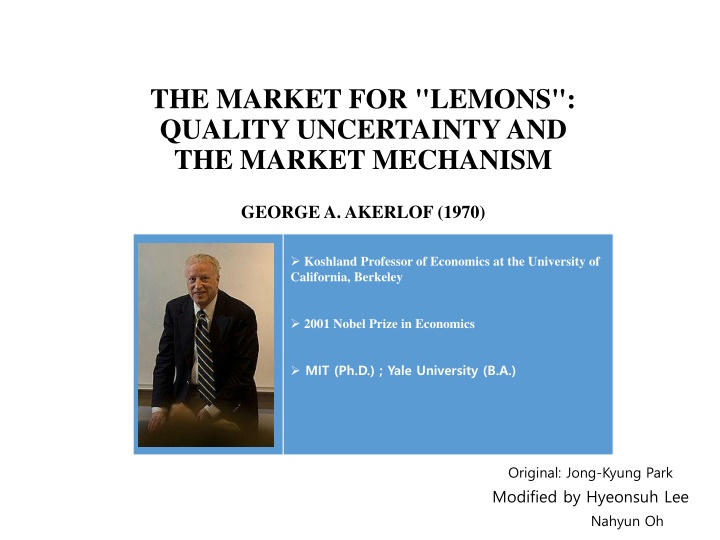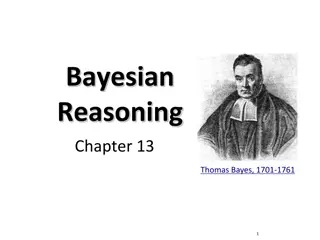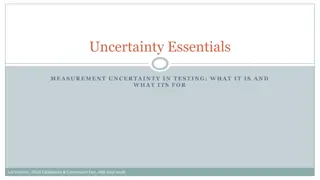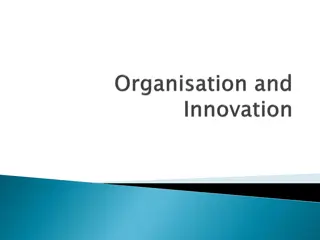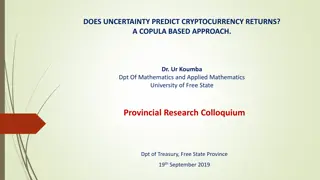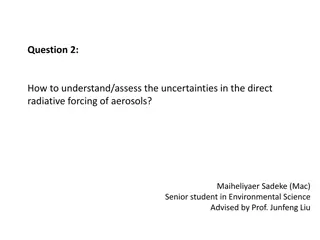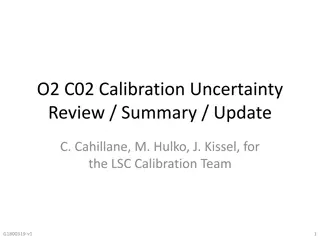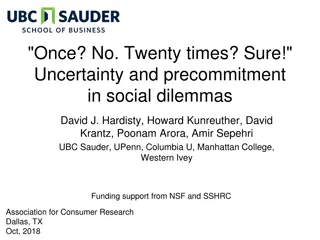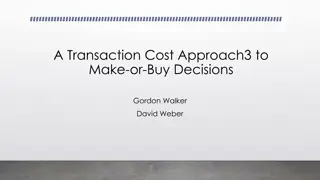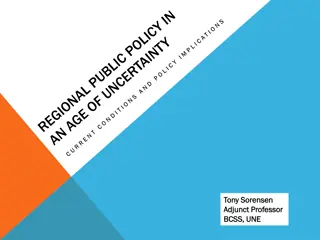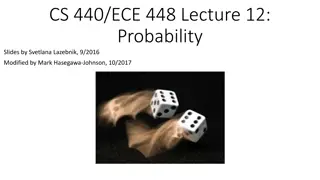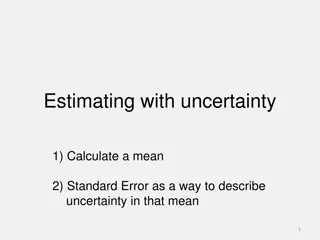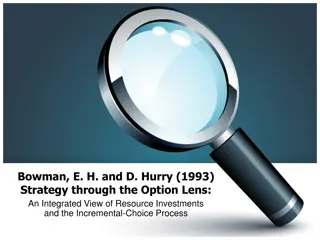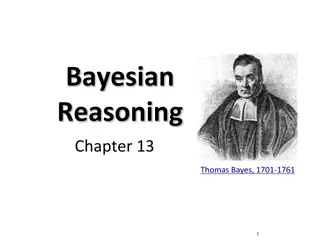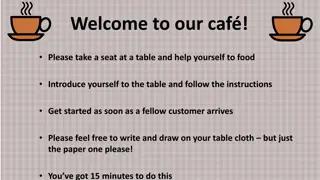The Market for Lemons: Quality Uncertainty & Economic Theory
The paper by George A. Akerlof explores quality uncertainty in markets, focusing on adverse selection and its impact on labor markets. It delves into buyer-seller incentives, the example of the automobile market, and Gresham's Law, highlighting information asymmetry and its economic implications.
Download Presentation

Please find below an Image/Link to download the presentation.
The content on the website is provided AS IS for your information and personal use only. It may not be sold, licensed, or shared on other websites without obtaining consent from the author.If you encounter any issues during the download, it is possible that the publisher has removed the file from their server.
You are allowed to download the files provided on this website for personal or commercial use, subject to the condition that they are used lawfully. All files are the property of their respective owners.
The content on the website is provided AS IS for your information and personal use only. It may not be sold, licensed, or shared on other websites without obtaining consent from the author.
E N D
Presentation Transcript
THE MARKET FOR "LEMONS": QUALITY UNCERTAINTY AND THE MARKET MECHANISM GEORGE A. AKERLOF (1970) Koshland Professor of Economics at the University of California, Berkeley 2001 Nobel Prize in Economics MIT (Ph.D.) ; Yale University (B.A.) Original: Jong-Kyung Park Modified by Hyeonsuh Lee Nahyun Oh
The need for research Microeconomic theory models in the 1960s were characterized by their generic nature in which they dealt with perfect competition and general equilibrium. Situational and specific considerations were left out (such as information asymmetries). The existence of goods of many grades poses interesting and important problems for the theory of markets.
Research Purpose The paper relates quality and uncertainty. Investigates the adverse selection problem. Explores the interaction of quality differences and uncertainty in explaining important institutions of the labor market. Gives structure to the statement: Business in under-developed countries is difficult. Determines the economic costs of dishonesty.
Buyer Seller Incentive to market poor quality goods. Judge quality based on market statistics. Reduction in the average quality of good and size of the market. Social and private returns differ. Sometimes, government intervention increases the welfare of parties.
The Automobile Market Large price difference between new cars and those that have just left the showroom. After owning a specific car for a length of time, the car owner can form a good idea of its quality. An asymmetry in available information has developed: for the sellers now have more knowledge about the quality of a car than the buyers.
Greshams law Bad money drives out good. For most cars traded will be the lemons, and good cars may not be traded at all. Bad cars tend to drive out the good. Because bad cars sell at the same prices as good cars. It is impossible for a buyer to tell the difference between a good car and a bad car; only the seller knows. Information asymmetry exists. CIRCULATION COIN COIN CIRCULATION COMPOSED OF CHEAPER METAL COMPOSED OF EXPENSIVE METAL The exchange rate is even. Both buyers and sellers know the difference between good and bad money.
Lemon Market Model Where: M is the consumption of goods other than automobiles, xi is the quality of the ith automobile, and n is the number of automobiles.
Model with Information Asymmetry Demand-Supply for group 1 Demand-Supply for group 2 Demand Curve Supply Curve
Model with Information Asymmetry Table : Demand and Supply in Asymmetric Case Price and Average quality Demand Supply Equilibrium Group 1 Group 2 ?1 ? ?2 ? ?? 2 p < ? - ?2 ? ?? 2 ? < p < 3 - 2? p > 3 0 0 N - 2? The average quality of cars is only a half of the offering price. The buyer is uncertain about the quality of cars Group 1 only wants to pay at P/2, while group 2 only wants to pay at 3/4p. No cars will be sold at price p. The price would go down, which further drives some sellers out of the market and further lowers down the average quality of cars, leading to the shrinking of the market.
Model with Information Symmetry Supply Demand Table : Demand and Supply in Asymmetric Case Price Demand Supply Equillirium Group 1 Group2 0 0 N - 0 N 0 N P=1 N P<1 0 -
Model with Information Symmetry Equilibrium of Supply and Demand in Symmetric Case There is no equilibrium when price is above 3/2, because group 1 is willing to sell their car, but no group is willing to buy, since the reservation price of group 2 is only 3/2 and group 1 is only 1. When price is 3/2, only group 2 wants to buy the car, because price is still above the reservation price of group 1 When price falls below 1, the equilibrium doesn't exist since group 1 doesn't want to supply/ sell their cars.
Insurance Under information asymmetry, insurance providers cannot discern between types of applicants (the healthy vs. unhealthy) Why doesn't the price rise to match the risk? As the price level rises, the people who insure themselves will be those who are increasingly certain that they will need the insurance. As a result, the average medical condition of insurance applicants deteriorates as the price level rises. Consequently, no insurance sales may take place at any price. Average health condition deteriorates Incentive of insurance providers hurts Attract high risk applicants Insurance market shrinks Price rises One possible solution for adverse selection Group insurance
Employment of Minorities Race may serve as a good statistic for the applicant's social background, quality of schooling, and general job capabilities. The fact that some demographic groups are preferred to others is because employers make judgments about the average behavior of an observable group of people. Quality schooling may be a substitute for this statistic. Workers with high ability have lower costs of pursuing attainment of education at higher levels, which can act as a signal of their productive capacity.
Cost of Dishonesty In the example for the used car market, there is an incentive for the sellers to offer lemons at the market price. This lowers the expected quality of a good from the perspective of consumers; this drives legitimate goods out of business. Dishonest dealings tend to drive honest dealings out of the market. The cost of dishonesty lies not only in the amount by which the purchaser is cheated but also the cost of loss incurred from driving legitimate business out of existence.
Credit Market in Underdeveloped Countries In India a major fraction of industrial enterprise is controlled by managing agencies. Promoter would turn to the agency because of its reputation, which would encourage confidence in the venture and stimulate investment. If there were symmetric information, investors would immediately know whether or not a venture was worth investing in, and there would be no need for additional spending on a managing agency to draw in more investment. The local moneylender charges extortionate rates to his clients. Cooperative Movement was meant to compete with local money lender. Lender A would retain all the borrowers below a threshold of riskiness and Lender B would find itself strapped with all the higher risk borrowers(lemons). Creates a barrier for entry in the market.
Counteracting Institutions Institutions arise to counteract the effects of quality uncertainty Guarantees Guarantees of a good's average quality helps reduce buyer uncertainty regarding quality. The risk is borne by the seller rather than by the buyer. Brand names Brand names serve as an indicator of quality and allow for consumer retal iation (i.e., no longer purchasing that brand) in the case that the true qual ity of a good fails to reflect the expected quality of the good. Chains Similar to brand names. (e.g., the chain restaurants on interurban highways : provide local customers with restaurant options) Licensing Licensing for skilled workers signal to market participants that those poss essing licenses have reached a certain level of education, training or skill. ( e.g., doctors, lawyers, barbers, etc.)
Conclusion Informal unwritten guarantees are preconditions for trade and production. Where these guarantees are indefinite, business will suffer as indicated by generalized Gresham's law. The difficulty of distinguishing good quality from bad is inherent in the business world. Institutions emerge to mitigate this uncertainty.
Discussion A used-car salesperson may work to maintain his reputation rather than pass off a "lemon". Reputation is usually a good asset if one intends to continue business in the market.
